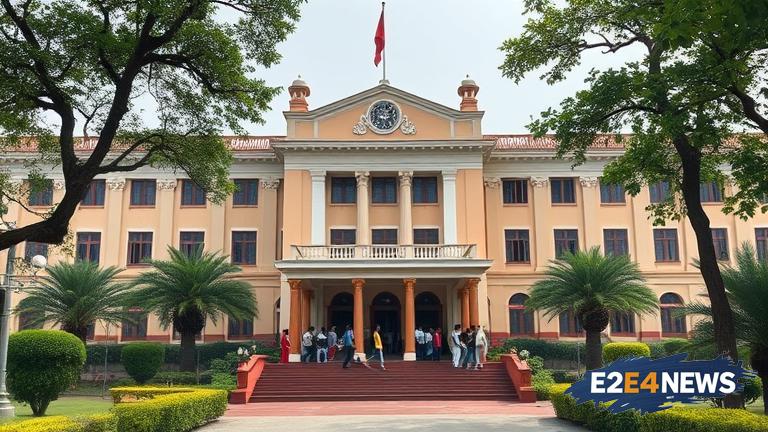The Calcutta University has taken a firm stance against the West Bengal government’s request to reschedule its upcoming exams to accommodate a Trinamool Congress (TMC) event. The university’s decision has sparked a heated debate, with many hailing it as a victory for academic autonomy. The TMC event, scheduled to take place on January 19, had prompted the state government to appeal to the university to reschedule its exams, citing the importance of the event. However, the university has refused to budge, citing the academic priorities of its students. The university’s decision is seen as a significant blow to the TMC, which had been hoping to use the event to showcase its strength and popularity. The event, which is expected to be attended by thousands of TMC supporters, had been widely publicized, with many expecting it to be a grand spectacle. However, the university’s refusal to reschedule its exams has put a damper on the TMC’s plans. The university’s vice-chancellor has stated that the institution’s academic calendar is sacrosanct and cannot be altered to accommodate political events. The decision has been welcomed by many students and teachers, who have expressed relief that the university has prioritized their academic interests. The TMC, on the other hand, has expressed disappointment and frustration at the university’s decision, with some leaders accusing the institution of being ‘anti-government’. The controversy has sparked a wider debate about the role of politics in education, with many arguing that academic institutions should remain apolitical. The university’s decision has also been seen as a reflection of the growing tensions between the state government and the academic community. The TMC has been accused of trying to exert undue influence over academic institutions, with many alleging that the party is trying to use its power to shape the educational landscape of the state. The university’s refusal to reschedule its exams has been hailed as a victory for academic freedom and autonomy. The incident has also highlighted the importance of protecting academic institutions from political interference. The university’s decision has been welcomed by many opposition parties, who have accused the TMC of trying to politicize education. The controversy has also sparked a wider debate about the role of politics in education, with many arguing that academic institutions should remain apolitical. The university’s decision has been seen as a significant blow to the TMC’s efforts to expand its influence over academic institutions. The incident has also highlighted the importance of protecting academic institutions from political interference. The university’s refusal to reschedule its exams has been hailed as a victory for academic freedom and autonomy. The decision has been welcomed by many students and teachers, who have expressed relief that the university has prioritized their academic interests. The TMC, on the other hand, has expressed disappointment and frustration at the university’s decision, with some leaders accusing the institution of being ‘anti-government’. The controversy has sparked a wider debate about the role of politics in education, with many arguing that academic institutions should remain apolitical. The university’s decision has also been seen as a reflection of the growing tensions between the state government and the academic community. The incident has also highlighted the importance of protecting academic institutions from political interference. The university’s refusal to reschedule its exams has been hailed as a victory for academic freedom and autonomy.





